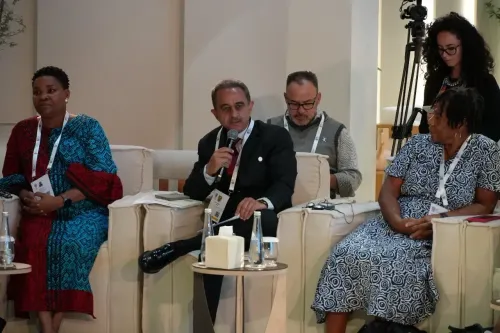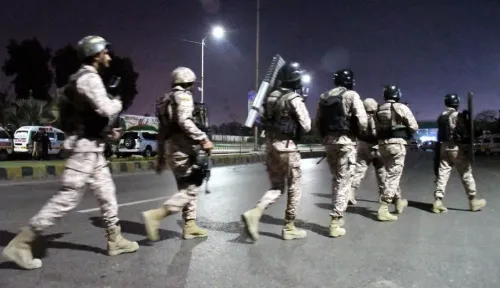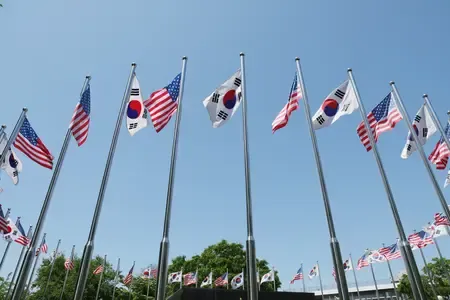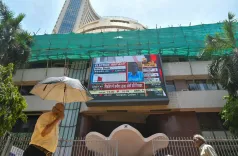South Korea: Constitutional Court to Announce Ruling on Yoon's Impeachment This Friday
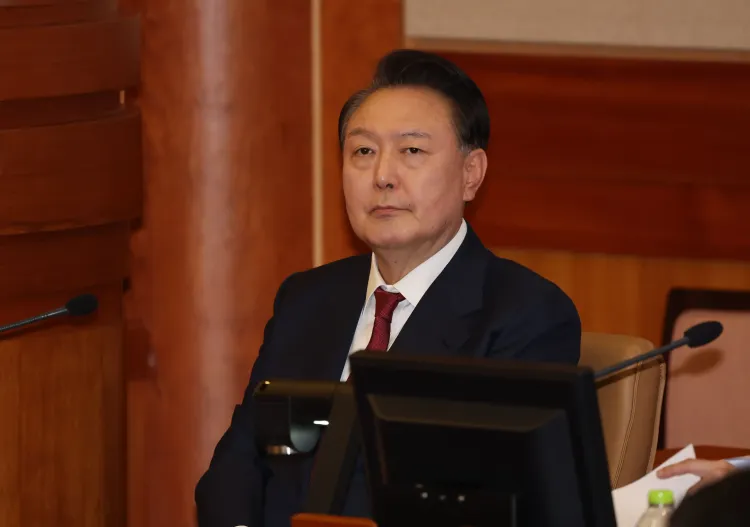
Synopsis
Key Takeaways
- Ruling time: 11 a.m. on Friday.
- Live broadcasts: Allowed for public attendance.
- Impeachment duration: Nearly four months since Yoon's impeachment.
- Leadership challenges: Country faced two acting presidents during this time.
- Decision impacts: Yoon's future depends on the court's ruling.
Seoul, April 1 (NationPress) The Constitutional Court of South Korea is set to announce its ruling regarding the impeachment of President Yoon Suk Yeol on Friday at 11 a.m., igniting hopes for a resolution to the ongoing political chaos that has enveloped the nation since his brief declaration of martial law in December.
This verdict will be broadcast live, with the public allowed to attend, as per the court's notification to the media on Tuesday.
The decision will follow nearly four months after Yoon faced impeachment by the National Assembly, accused of breaching constitutional laws due to his temporary imposition of martial law on December 3.
In the meantime, the country has experienced two acting presidents, including one who was impeached and later reinstated, alongside numerous political and economic hurdles stemming from the leadership void.
During the trial, Yoon was charged with dispatching troops to the National Assembly to prevent lawmakers from voting against the decree and ordering the arrest of key political figures, among other allegations.
Yoon has refuted the accusations, asserting that the order was intended as a caution to the main opposition party for what he termed as its misuse of legislative authority.
According to the Constitution, at least six justices must agree to uphold an impeachment motion, with a total of eight justices currently on the bench.
If the impeachment motion is upheld, Yoon will be ousted from his position. Conversely, if dismissed, he will be reinstated to complete his term until May 2027, as reported by Yonhap news agency.
Apart from the impeachment proceedings, which effectively concluded with the final hearing on February 25, Yoon is undergoing a criminal trial accused of inciting an insurrection due to his martial law attempt.
He was taken into custody by investigators in January and held at a detention facility until March 8, when he was released by a court ruling deeming his detention invalid.
Yoon's legal team has stated that his attendance at the court for the ruling remains uncertain.
Both the ruling People Power Party and the primary opposition Democratic Party expressed their approval of the court's announcement.
"It's reassuring that this period of constitutional instability will come to an end," remarked PPP interim leader Kwon Young-se to the press.
PPP floor leader Kweon Seong-dong reiterated the party's commitment to accepting the ruling, urging the court to remain unaffected by the Democratic Party's attempts to sway the outcome.
Meanwhile, DP floor leader Park Chan-dae expressed optimism that the justices would unanimously vote to remove Yoon from office.
"The most appropriate ruling to quell the ongoing state of insurrection is undoubtedly the dismissal of insurrection leader Yoon Suk Yeol," he stated.
The presidential office issued a brief remark to the press indicating it will "calmly await the decision of the Constitutional Court."
The court's ruling will come after a maximum of thirty-eight days since the final hearing, which is the longest duration for a presidential impeachment ruling.
In previous impeachment cases involving former Presidents Roh Moo-hyun and Park Geun-hye, it took the court 14 days and 11 days, respectively.
Following the announcement, four of the six exits of Anguk Station near the Constitutional Court were temporarily closed as a precaution against protests for and against Yoon's impeachment.
Train services will be suspended at the station on Friday, and similar measures may be applied to nearby stations including Gwanghwamun, Gyeongbokgung, Jongno 3-ga, Jonggak and City Hall, along with Hangangjin close to the official presidential residence.

